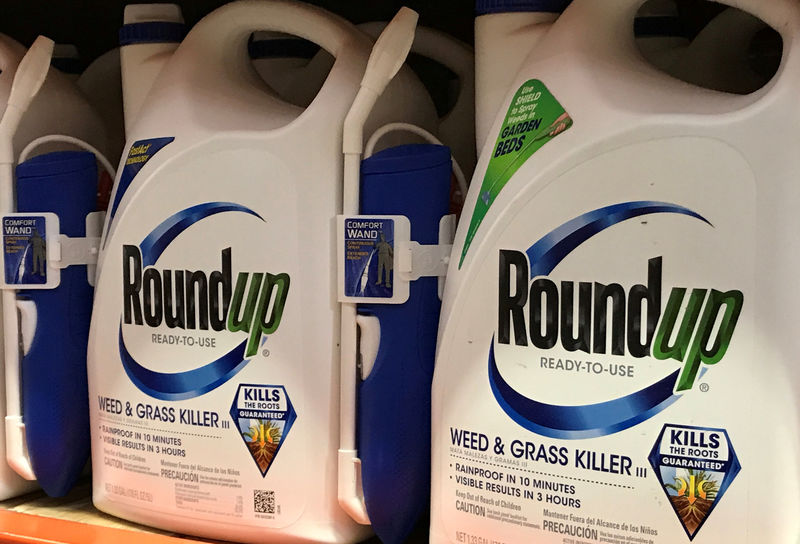Investing.com’s stocks of the week
By Geoffrey Smith
Investing.com -- Shares in German chemicals giant Bayer (DE:BAYGN) are soaring Thursday after activist investor Paul Singer’s Elliott Management unveiled a $1.1 billion investment in the company.
The news came on the heels of Bayer’s announcement on Wednesday that it had hired John Beisner, a renowned litigation lawyer, to advise it on its handling of thousands of lawsuits against it in relation to health problems allegedly caused by glyphosate, the active ingredient in its Roundup weedkiller. Roundup became a Bayer brand when it bought Monsanto (NYSE:MON) for $66 billion, a deal that completed last year.
By 5 AM ET (0900 GMT), the company’s stock was up 7.8%, way ahead of the rest of a Dax index that was up 0.6% on reinforced hopes of rate cuts from the European Central Bank and Federal Reserve, and on hopes that the U.S. will put off the next round of tariffs on Chinese imports, which are due to come into effect next week. The U.K. FTSE 100 was up 0.1%, while the benchmark Euro Stoxx 600 was up 0.3% at 381.18.
Elliott issued a statement on Wednesday saying that it expects Beisner to help Bayer find “a timely, fair resolution to its complex litigation challenges.”
That in itself would be welcome for Bayer shareholders, who voted in record numbers against the performance of the company’s management at this year’s shareholder meeting, only to have the supervisory board refuse to act on their resolution.
But for Elliott, it’s only a starter before the main course. The activist said it reckons Bayer’s market value should be 30 billion euros higher and issued a thinly-veiled warning that it wants to see more of its businesses spun off or sold to realize that value.
“Elliott looks forward to the Company building upon today's announcement, and making a credible commitment to the exploration of long-term value creative levers beyond the immediate litigation and governance enhancements,” it said.
That’s where things will get tricky for CEO Werner Baumann. While Bayer has shuffled its corporate portfolio a bit in recent years – it spun off coatings business Covestro and is looking to sell its animal health business by the end of the year -- it has an unwieldy conglomerate structure, spanning pharmaceuticals, crop science and consumer health.
Elliott can be expected to pressure Baumann into doing more, faster, to simplify the company. That will go against the grain of a management given to empire-building, but the reality is that the Monsanto acquisition has been a failure, and that, despite the protection from Baumann’s allies on the supervisory board, Elliott will make management pay for it.
